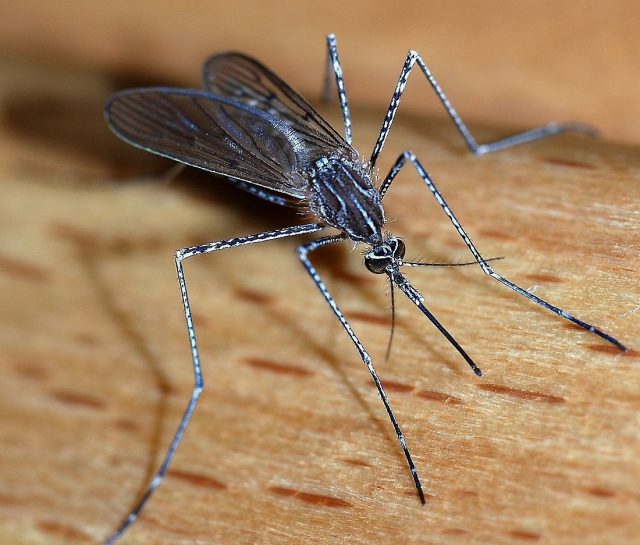Atlantic County health officials are urging residents to take measures to protect themselves from mosquito-borne illness by reducing their exposure to mosquito bites as officials have confirmed the first human case of West Nile virus in an Atlantic County resident this year, according to a county news release.
According to the New Jersey Department of Health, as of August 27, five human cases of West Nile virus have been identified in the state. Prior to this case, Atlantic County last reported a human case of West Nile virus in October 2021.
County officials recently confirmed three mosquito pool samples tested positive for West Nile virus in August. Those samples were collected in Mullica Township, Northfield and Linwood.
Officials are continuing to conduct mosquito surveillance and implement mosquito control measures throughout the county.
West Nile virus is seen most often during the summer and early fall months. The virus is carried by infected mosquitoes and can be transmitted to birds, animals and humans. Anyone can get infected but people over 50 years of age and those with weakened immune systems are at greater risk of developing severe illness.
There is no specific treatment for West Nile virus. Most people with West Nile virus will recover in approximately seven days. Antibiotics are not effective against viral illnesses and anti-viral drugs have not shown to be effective for treating West Nile virus.
Most treatment focuses on supportive therapy for flu-like illness with fever, headache, body aches, nausea and sometimes swollen lymph glands or a skin rash on the chest, stomach and back. In severe cases, hospitalization may be needed. There is currently no vaccine for humans.
The best way to prevent the disease is to avoid mosquito bites. Follow these steps to reduce your risk of being bitten by mosquitoes:
- Wear shoes and socks, long pants and a long-sleeved shirt when outdoors at dusk or dawn when mosquitoes are most active;
- Use an EPA-approved insect repellent according to product directions whenever going outdoors. Consult with your healthcare provider prior to using on children;
- Take steps to reduce mosquito breeding by emptying or changing outdoor standing water in flower pots, birdbaths, clogged rain gutters, plastic wading pools, wheelbarrows, and any container found around the property or building exterior.
Contact with mosquitoes can also be reduced by using air-conditioning when possible and ensuring window screens are in good repair.
For more information about West Nile Virus, visit www.aclink.org/publichealth or call the Division of Public Health at (609) 645-5971. If you need assistance in removing stagnant puddles or floodwater from your property, call the Office of Mosquito Control at (609) 645-5948.








